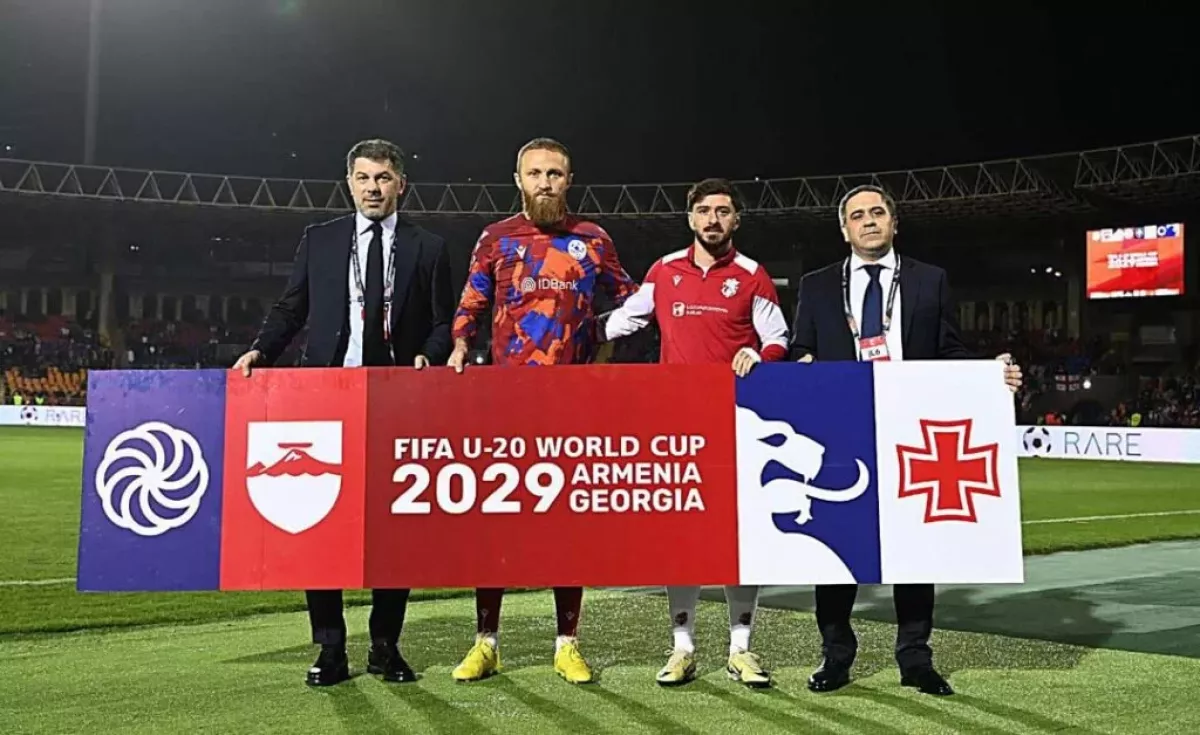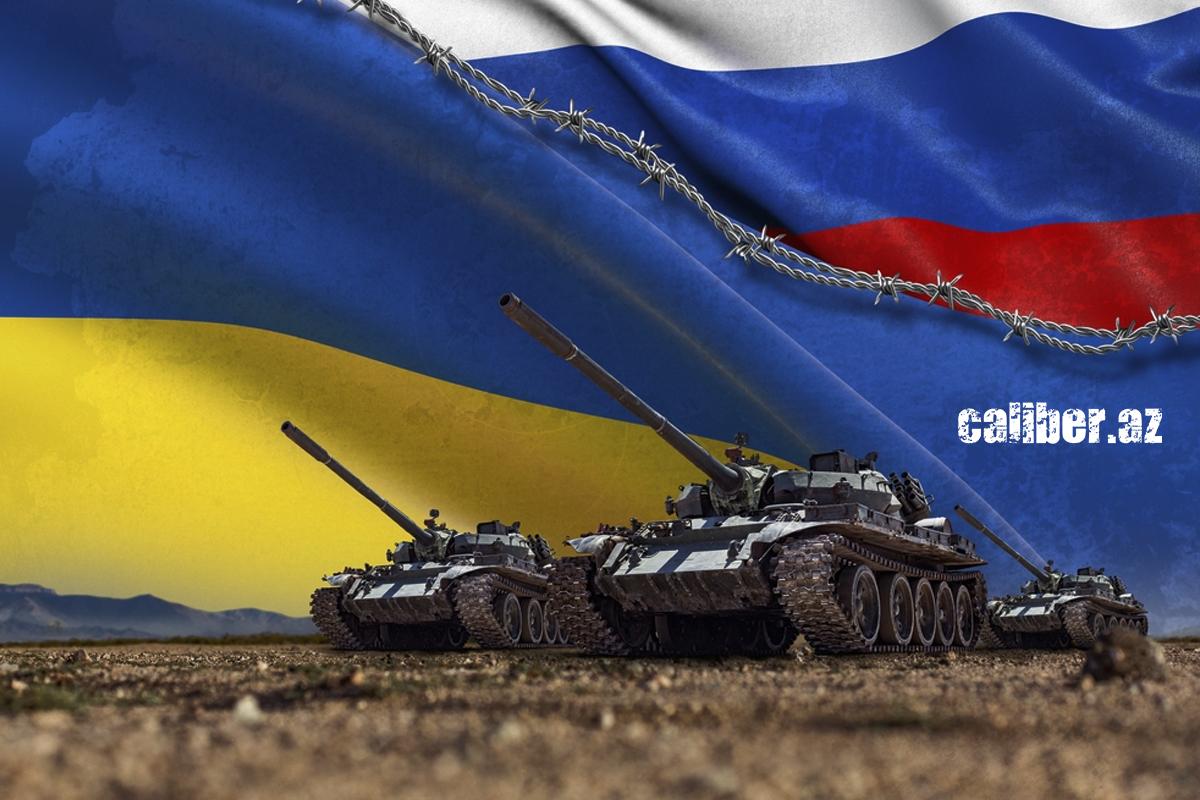Joint championship or geopolitical game? Far-reaching plans of Yerevan
Football is closely linked to politics and geopolitics, and this is also true for Georgia, especially since both the country's president, Mikheil Kavelashvili, and the mayor of Tbilisi, Kakha Kaladze, are former football players. Therefore, when the Football Federation of Armenia announced on March 20 that the football federations of Armenia and Georgia are submitting a bid to FIFA to jointly host the 2029 FIFA U-20 World Cup in both countries, it became clear that the issue was not just about football, but about big politics. "This will be a great opportunity to develop football in both states. Let’s support the joint bid of the two countries together," reads the statement from the Football Federation of Armenia.
By the way, Armenia recently used football and the "promotion of football" in its geopolitical games, and it was aimed at Georgia in a very unfriendly manner. Just six years ago, Armenia supported separatism in Georgia through football, and it's strange that many Georgians, who are now celebrating the prospects of a "joint championship with Armenia," seem to have forgotten this. This refers to the holding of the so-called "ConIFA European Football Cup" or "championship" among unrecognized states and separatist territories in the Azerbaijani region of Nagorno-Karabakh, which was then occupied by Armenia, in the summer of 2019.
Formally, this so-called "cup" was organized by the authorities of the separatist "Artsakh" led by Bako Sahakyan. However, everyone knew that the entire organization was handled by the occupying country — the Republic of Armenia, which was then led by the current Prime Minister, Nikol Pashinyan. It was through Armenia's territory that separatist football teams arrived in the then-occupied Khankendi, including the teams of the separatist regions of Abkhazia and so-called "South Ossetia." Moreover, among the "honored guests" in Khankendi were such enemies of Georgian statehood as Russian State Duma deputy Konstantin Zatulin, the so-called "president of South Ossetia" Anatoly Bibilov, the so-called "foreign minister" of separatist Abkhazia, Daour Kove, and the head of the Armenian diaspora in Abkhazia, one of the commanders of the notorious Bagramyan battalion, Galust Trapizonyan.
The winner of the "championship" in Khankendi was the team from the so-called "South Ossetia," second place went to the team of the phantom so-called "Western Armenia," and third place was taken by separatist Abkhazia. However, the organization of these football pseudo-championships did not help the Armenian occupiers and separatists in any way; today, both the separatist regime and its football "teams" have irreversibly faded into history. Yet, Armenia's desire to use football in its geopolitical games has not disappeared.

The announcement that Armenia and Georgia intend to jointly host the U-20 World Cup came against the backdrop of the UEFA Nations League playoff matches between the national teams of Armenia and Georgia, which took place first on March 20, 2025, in Yerevan, and then on March 23, 2025, in Tbilisi. The match in Yerevan ended with a victory for Georgia – 3:0, and in Tbilisi, Georgia literally crushed Armenia with a score of 6:1. On aggregate (9:1), Georgia will play in Division B of the UEFA Nations League in the upcoming season, while Armenia remains in Division C.
In principle, Georgia's victory over Armenia was justified — the Georgian players objectively played better. However, it seems that for Armenia, "politically," the defeat of its national team was even somewhat beneficial. In both matches — in Yerevan and Tbilisi — Armenian Prime Minister Nikol Pashinyan tried to "make the most of it," first by inviting Georgian Prime Minister Irakli Kobakhidze to his capital, and then making a return visit, also timed to coincide with the football match in Tbilisi.
Moreover, the final match in Tbilisi was unpleasantly marred by clashes between fans. Bottles, chairs, and other objects were thrown into various sections of the stands. According to journalist Robert Ananyan, it was the Georgian fans who started throwing objects at the section with Armenian supporters, which led to the confrontation. This incident could have serious consequences for Georgian fans — they may face a ban on attending future matches.
Armenians typically react strongly to such incidents, and under normal circumstances, Armenian social media and news outlets would be flooded with accusations of "unhospitality" and "Armenophobia." However, this time, as if by command, the episode involving the clash between fans was quickly brushed aside in Armenia. It became immediately clear that the Armenian authorities have high hopes for the football situation and their relationship with Georgia, with football serving as a gateway to "big politics." In Yerevan, they are prepared to "swallow" not only crushing defeats on the football field but even attacks on their own fans.
There are serious concerns that football could become a tool for the international Armenian lobby to "bind" Georgia to itself and its geopolitical plans. Especially considering the existence of a precedent for such a "geopolitical binding," which began with football and ended in a military alliance and military transit — this is evident in the military supplies to Ukraine that pass through Poland. Armenia would like to establish similar supply routes through Georgia in the event of a "major war" in the South Caucasus. It seems that the plan to move in this direction has been decided, and football may be the starting point.
The persistence with which Armenia and its Football Federation are lobbying for the U-20 World Cup to be held in Armenia and Georgia brings to mind football events in Europe from 13 years ago. Few people remember that the Maidan revolution, the annexation of Crimea, the war in Donbas, and Russia's subsequent invasion of Ukraine — which led to the ongoing war — were preceded by a "grand football celebration" — the UEFA Euro 2012, which was hosted by two countries, Ukraine and Poland. The fact that these two countries were chosen as hosts for the European Football Championship subconsciously "tied" Ukraine to Poland.
At that time, by the way, there was no conflict between Ukraine and Russia, and the Ukrainian government, led by Viktor Yanukovych, was seen as somewhat "pro-Russian." However, no one suggested holding the football championship, say, in Ukraine and Russia instead of Ukraine and Poland. Thus, the geopolitical vector of Ukraine's pivot was set, including in the football sphere. Interestingly, one of the cities hosting matches during Euro 2012 was Donetsk, which less than two years later became a battleground, with the airport, renovated for the football championship, being "demolished to the ground" during the war.

A significant role in the subsequent "Euromaidan" in Ukraine, following Euro 2012, was played by football fans, most of whom were "pro-European" and anti-Russian, despite speaking Russian among themselves. According to some analysts, armed confrontation between pro-Russian and pro-Western forces in Ukraine became almost inevitable after the events in Odessa on May 2, 2014, where football fans played a key role. Therefore, the connection between football and geopolitics is not without its risks.
There are serious reasons to be concerned that lobbying for the youth championship in Georgia and Armenia, along with the emphasis on the "Georgian-Armenian football brotherhood," may be nothing more than preparation for a future war in Armenia's interests. Similarly to how the UEFA Euro 2012 was organized in both Poland and Ukraine, and then events unfolded leading to Ukraine's involvement in war with its eastern neighbor, with a large portion of military supplies to Ukraine passing through Poland, a similar scenario may be planned with Armenia.
Armenia might even deliberately "play along" on the football field so that when it comes to a "major war," Georgia "would not dare to refuse" Armenia, which has been "tied" to it through football and "joint championships," in allowing the transit of weapons. Not to mention that a youth football championship in Armenia and Georgia would cause the two countries to be perceived by the uninformed global public as a "unified geopolitical entity." If we add to this the emphasis on the propaganda of a supposed "Christian unity" — which Armenian nationalists promote when it suits their interests — the plans of the organizers of the "joint youth football championship" in Georgia and Armenia become quite clear.
Vladimir Tskhvediani, Georgia, exclusively for Caliber.Az.








